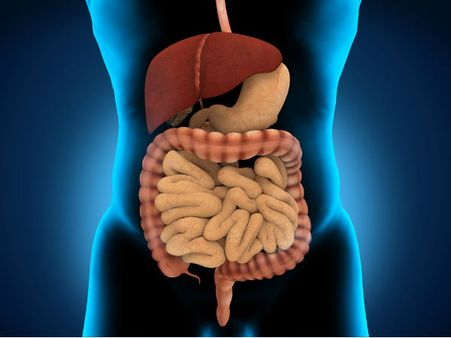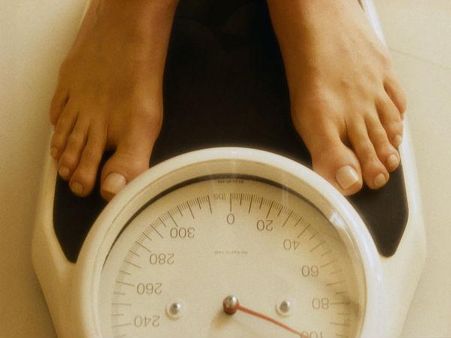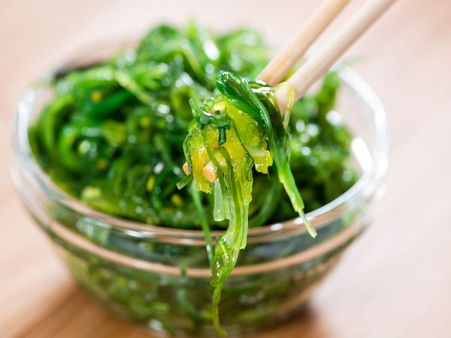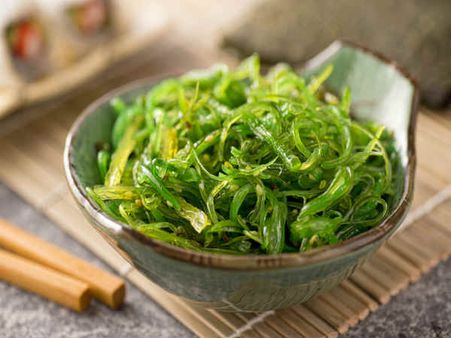Just In
- 5 hrs ago

- 5 hrs ago

- 9 hrs ago

- 15 hrs ago

Don't Miss
- Finance
 FREE, FREE, FREE! 3:1 Bonus: Pharma Stock Hits Back-To-Back Upper Circuits; 500 Shares To Earn Rs 1,69,500
FREE, FREE, FREE! 3:1 Bonus: Pharma Stock Hits Back-To-Back Upper Circuits; 500 Shares To Earn Rs 1,69,500 - Sports
 Manchester City vs Chelsea LIVE Streaming: Where to Watch FA Cup Semi-Final in India, UK, USA and Other Countries
Manchester City vs Chelsea LIVE Streaming: Where to Watch FA Cup Semi-Final in India, UK, USA and Other Countries - Movies
 Pukaar Dil Se Dil Tak Promo: Sayli Salunkhe Impresses In First Video Of Sony TV Show, Details About Her Role
Pukaar Dil Se Dil Tak Promo: Sayli Salunkhe Impresses In First Video Of Sony TV Show, Details About Her Role - News
 Chinese President Xi Jinping Orders Biggest Military Reorganisation Since 2015
Chinese President Xi Jinping Orders Biggest Military Reorganisation Since 2015 - Education
 Exam Pressure Does Not Exist; Studying Punctually is Crucial; Says Aditi, the PSEB 2024 Topper
Exam Pressure Does Not Exist; Studying Punctually is Crucial; Says Aditi, the PSEB 2024 Topper - Automobiles
 Suzuki Swift Hatchback Scores 4 Star Safety Rating At JNCAP – ADAS, New Engine & More
Suzuki Swift Hatchback Scores 4 Star Safety Rating At JNCAP – ADAS, New Engine & More - Technology
 Dell Introduces AI-Powered Laptops and Mobile Workstations for Enterprises in India
Dell Introduces AI-Powered Laptops and Mobile Workstations for Enterprises in India - Travel
 Journey From Delhi To Ooty: Top Transport Options And Attractions
Journey From Delhi To Ooty: Top Transport Options And Attractions
Seaweed: Health Benefits, Risks And Recipe
Seaweed or sea vegetables is a common name used to describe several different species of marine algae that grow in the sea, oceans and rivers. Seaweeds have long been used as a food, folk remedy, dye and fertiliser. Seaweed is most commonly consumed in Asian countries where it has been a prominent part of diets.
There are many types of edible seaweed, which has its own unique taste, texture and appearance; however, the most common types are nori, kelp, wakame, kombu, dulse and blue-green algae such as spirulina and chlorella.

Nutritional Information Of Seaweed
Seaweed is a good source of dietary fibre, omega 3 fatty acids, protein, vitamin A, vitamin B, vitamin C, vitamin D, vitamin E, riboflavin, niacin, folic acid, pantothenic acid, iodine, iron, zinc, copper, selenium, manganese, magnesium, potassium, phosphorus, sodium and calcium [1] [2].
Health Benefits Of Seaweed

1. Fights free radical damage
Seaweed is chock-full of antioxidants and beneficial plant compounds, including carotenoids and flavonoids, which helps protect the body from free radical damage. Fucoxanthin is the main carotenoid found in brown algae, such as wakame. Studies showed that fucoxanthin has 13.5 times the free radical scavenging activity as vitamin E, an essential antioxidant [3].


2. Supports digestive health
Seaweed is an excellent source of fibre, an important nutrient that plays an important role in digestive health. Seaweed also contains sulphated polysaccharides that have been shown to increase the growth of good bacteria in the gut, which contributes to better gut health [4].

3. May lower blood sugar levels
The antidiabetic activity of edible seaweed has been shown in numerous studies. A 2017 study found that fucoxanthin present in seaweed may aid in improving blood sugar levels [5] [6]. Animal studies have also pointed out that seaweed can lower blood sugar levels [7] [8].


4. May help in weight loss
Seaweed contains a good amount of fibre and consuming it can help you feel full for longer and make you feel less hungry, which could potentially help in weight loss. Animal studies have shown that the presence of fucoxanthin in seaweed may help reduce body fat [9]

5. May reduce heart disease risk
Some research studies show that seaweed can help reduce cholesterol levels and protect against heart disease [10]. A 2013 study found rats that were fed a high-fat, high cholesterol diet supplemented with seaweed powder, resulted in a reduction in total cholesterol levels, LDL cholesterol and triglyceride levels [11].
Another study published in the Journal of Medicinal Food showed rats on a high-fat, high-cholesterol diet being fed seaweed, which resulted in reduced levels of bad cholesterol and triglycerides and increased good cholesterol [12].

6. Supports thyroid function
Seaweed is a great source of iodine, an essential mineral that is required by the thyroid gland to produce hormones, which are involved in energy production, repairing damaged cells, regulating muscle function and metabolism. An iodine deficiency will cause symptoms such as weight changes, hair loss, fatigue and swelling of the neck [13] [14] [15].

7. May manage cancer
Noted studies have shown the anticancer activity of seaweed [16] [17]. Seaweed contains a compound called fucoidan, which exhibits anti-cancer effects. Animal studies have shown that fucoidan stops the growth of melanoma, a type of skin cancer. Another study published in the Marine Drugs reported that seaweed can stop the growth of colon and breast cancer [18] [19].

Possible Risks Of Seaweed
Although
seaweed
is
considered
healthy,
however,
there
are
possible
risks
if
you
consume
in
excess.
Seaweed
is
rich
in
iodine
and
consuming
it
in
excess
quantities
can
affect
thyroid
function
and
this
can
cause
symptoms
like
swelling
or
tightness
around
the
neck
or
weight
gain
[20]
[21].
In addition, seaweed also contains heavy metals, this is because seaweed absorbs minerals from the sea. As seaweed contains toxic metals, consuming it can pose several health risks. However, studies show that edible seaweed contains low levels of toxic metals like aluminium, cadmium and lead which did not pose any health risk [22].
Nevertheless, if you eat seaweed daily toxic metals may build up in your body over time. So, it is better to consume seaweed in moderation and choose organic seaweed.

Seaweed Recipes
Seaweed salad
Ingredients
- 28 g dried seaweed
- 1 shallot, finely chopped
- 1 ½ tbsp soy sauce
- 1 tbsp rice vinegar
- 1 tbsp mirin (sweet rice wine)
- 1 tbsp sesame seed oil
- 1 pinch cayenne pepper
- 1 ginger, grated
- ½ tbsp sesame seeds (optional)
- Rinse the seaweed and soak it in a lot of water for 10 minutes until its tender.
- In a bowl, combine the remaining ingredients, except the sesame seeds.
- Drain the water and gently squeeze the seaweed to remove excess water. Chop it and add to the salad bowl with other ingredients.
- Toss all the ingredients and garnish with sesame seeds and serve.
Method
-
 wellnessWhat Is Carrageenan? Its Uses, Benefits And Side Effects
wellnessWhat Is Carrageenan? Its Uses, Benefits And Side Effects -
 hair careWhy Red Algae Is Good For Your Hair?
hair careWhy Red Algae Is Good For Your Hair? -
 healthDo You Keep A Clove Of Garlic Under Pillow? Not To Keep Vampires At Bay, There May Be Scientific Reasons
healthDo You Keep A Clove Of Garlic Under Pillow? Not To Keep Vampires At Bay, There May Be Scientific Reasons -
 healthGet Your Groove On: 5 Health Benefits Of Dancing To Afro Beats
healthGet Your Groove On: 5 Health Benefits Of Dancing To Afro Beats -
 healthIndigenous Delicacies: 5 Rare Indian Wild Foods That Are So Healthy You Should Try It!
healthIndigenous Delicacies: 5 Rare Indian Wild Foods That Are So Healthy You Should Try It! -
 healthHaving Chicken Soup At Home Can Cure These Health Issues
healthHaving Chicken Soup At Home Can Cure These Health Issues -
 healthBoost Your Health with Beetroot: Health Benefits And Ways To Add The Colourful Veggie In Your Diet
healthBoost Your Health with Beetroot: Health Benefits And Ways To Add The Colourful Veggie In Your Diet -
 healthHealth Benefits Of Garam Masala: From Digestion To Weight Loss, Proper Use Can Yield Many Benefits
healthHealth Benefits Of Garam Masala: From Digestion To Weight Loss, Proper Use Can Yield Many Benefits -
 healthAyurvedic Wisdom: Panchamrit's Surprising Health Benefits
healthAyurvedic Wisdom: Panchamrit's Surprising Health Benefits -
 healthUnveiling the Power of Turmeric Ghee: An Ancient Ayurvedic Secret!
healthUnveiling the Power of Turmeric Ghee: An Ancient Ayurvedic Secret! -
 healthPlant-Based Diet And Nutrition: Your Key To A Stronger Immune System!
healthPlant-Based Diet And Nutrition: Your Key To A Stronger Immune System! -
 healthExperience the Healing Power of Indian Herbal Teas!
healthExperience the Healing Power of Indian Herbal Teas!


 Click it and Unblock the Notifications
Click it and Unblock the Notifications




